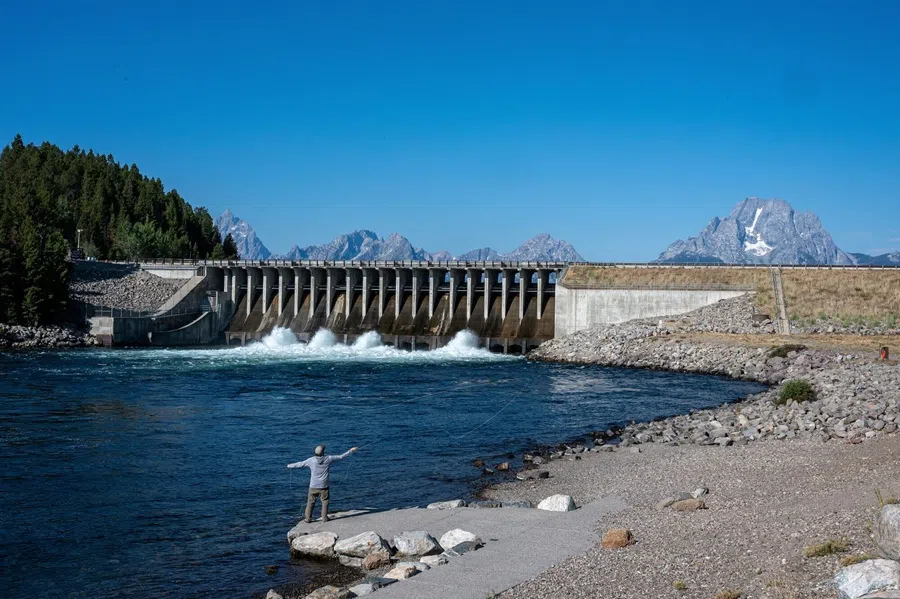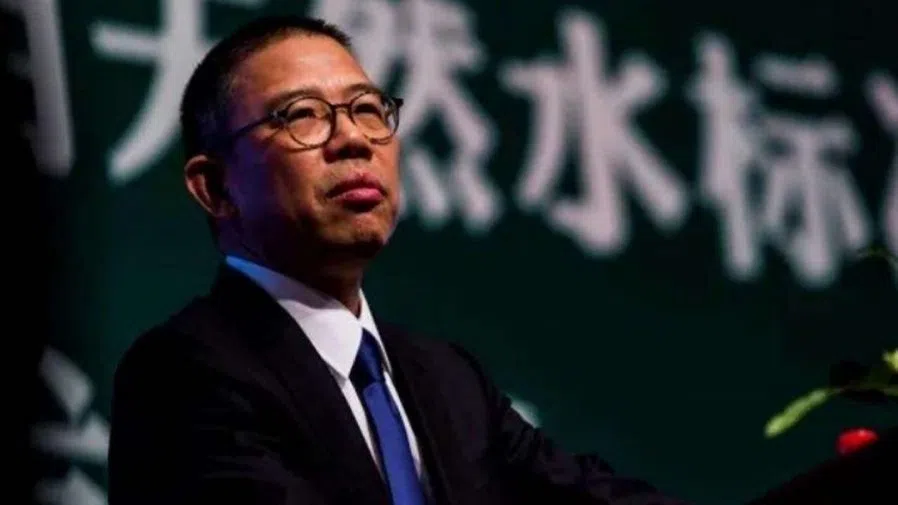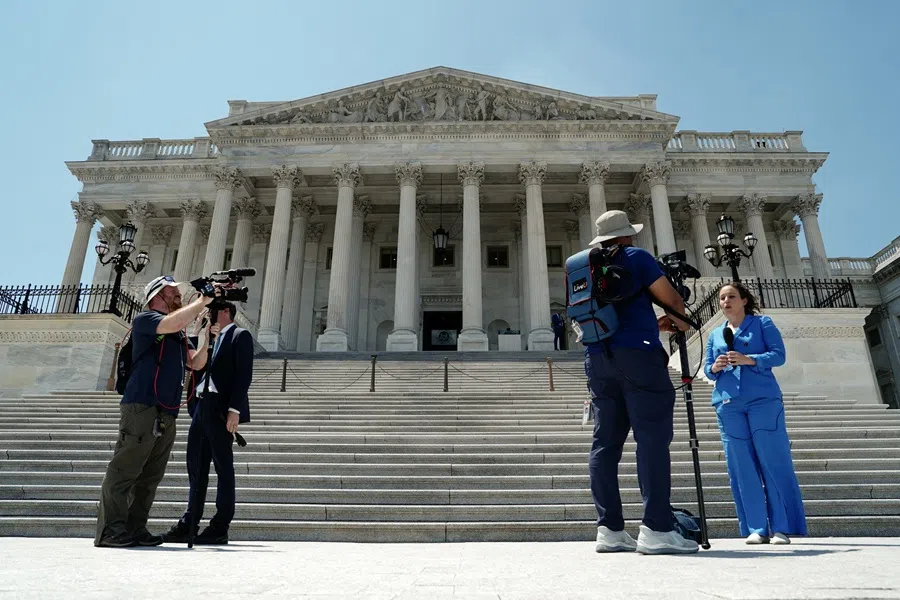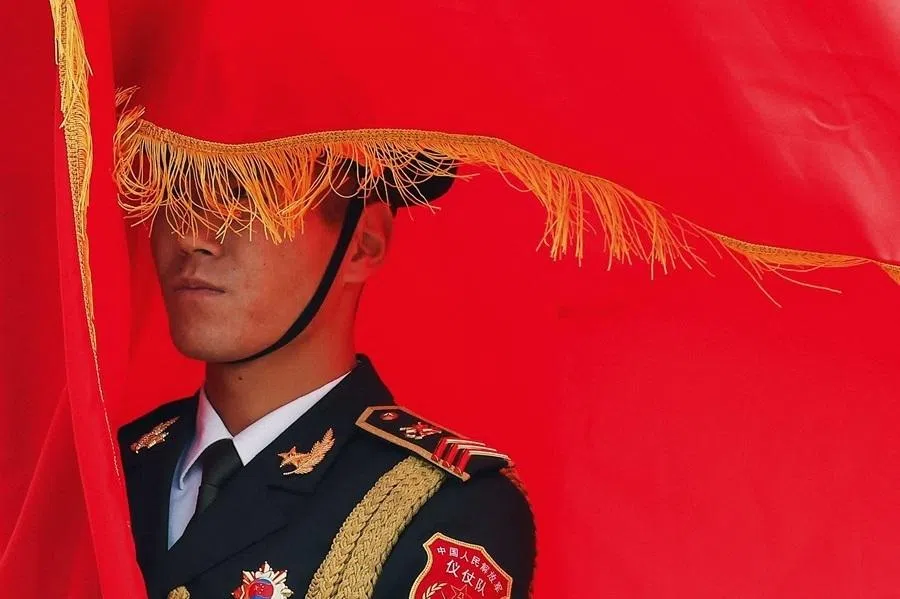When bottled water becomes a battlefield: Nongfu Spring faces backlash in the US
The controversial Nongfu Spring acquisition in Nashua, New Hampshire, underscores how local land and water transactions in the US are no longer seen as purely commercial. Instead, they are increasingly evaluated through the lens of national security, resource sovereignty and strategic competition. Researcher Genevieve Donnellon-May gives her analysis.

A real estate deal in the small northeastern state of New Hampshire has thrust Nongfu Spring — China’s largest bottled water and beverage company — into the heart of a national security debate in the US.
In January this year, NF North America, the company’s US subsidiary, purchased a 23-acre industrial site in Nashua for US$67 million — nearly four times its assessed value of US$15.6 million. The long-vacant property lies near a watershed supplying drinking water to the city, defence contractor BAE Systems, and a federal aviation control centre.
Founded in 1996 by Zhong Shanshan, a former journalist and now China’s richest individual with an estimated net worth of US$68.5 billion, and who is believed to have close ties to the Chinese Communist Party (CCP), Nongfu Spring has grown into China’s biggest beverage company. Its expansion into the US market, however, has ignited scrutiny over whether ostensibly commercial deals may also pose risks to resource security and national sovereignty.
Nashua water: legal & local fears
Following the announcement in May of Nongfu Spring’s acquisition in Nashua, New Hampshire, the deal immediately sparked political and public concern. The controversy highlighted the complex intersection of commercial investment, national security, and political perception in increasingly tense Sino-American relations.
Concerns intensified as observers speculated that the acquisition could provide China with leverage over local water resources, potentially giving it influence over a critical municipal utility.

Local media noted that the company did not purchase water supply rights, which remain with Pennichuck Water Works, Nashua’s municipal supplier. Any water required for a future bottling facility would need to be contracted through Pennichuck Water Works and would also be subject to state permitting. While state and local officials are aware of the potential for a water and beverage bottling plant as the intended purposes for the property, at the time of writing, no formal application for such a facility has been submitted.
Despite these assurances, scrutiny intensified due to Zhong Shanshan’s profile as China’s richest man, Nongfu Spring’s reliance on bottled water exports and the property’s proximity to a protected watershed, defence contractor BAE Systems and federal aviation infrastructure. Residents feared that foreign ownership near municipal water supplies and sensitive facilities could compromise critical infrastructure.
Transparency questions and suspicions about strategic intent were amplified on social media, which frequently linked Nongfu Spring to the CCP. Concerns intensified as observers speculated that the acquisition could provide China with leverage over local water resources, potentially giving it influence over a critical municipal utility.
Meanwhile, anxiety over potential large-scale water extraction drew parallels to past controversies involving multinational beverage companies, such as Nestlé and Coca-Cola, which were accused of overexploiting local water supplies.
Political pushback
Political opposition quickly coalesced. At the state level, the controversy revitalised efforts to restrict foreign land ownership near critical resources. State legislators quickly began exploring legal and regulatory measures to address perceived security risks. While federal and New Hampshire law previously did not prohibit Chinese companies from purchasing property, lawmakers proposed new measures to address national security risks.
Following news of the Nongfu Spring acquisition in Nashua months after the company’s purchase of the land, the New Hampshire legislature passed a provision in House Bill 2 prohibiting agents of hostile foreign nations (including China) from purchasing land in the state. This is part of broader efforts to directly address national security concerns tied to foreign real estate ownership.

Meanwhile, Republican state senators Kevin Avard (R-Nashua) and Regina Birdsell (R-Hampstead) pledged to continue opposing the Nongfu deal. Birdsell argued the case demonstrated foreign adversaries’ interest in acquiring US land, while Avard warned of risks ranging from agro-terrorism to national security vulnerabilities.
For Nongfu Spring and other Chinese companies, this means that even a seemingly routine acquisition of a bottling facility can face rigorous federal scrutiny...
In addition to calling for state-level enforcement, lawmakers are now urging an investigation by the Committee on Foreign Investment in the United States (CFIUS) — a Treasury-led body composed of nine cabinet-level officials, including the secretaries of treasury, defence, state, and homeland security.
CFIUS has the authority to review the national security implications of foreign investments and block transactions that pose national security risks in the US. For Nongfu Spring and other Chinese companies, this means that even a seemingly routine acquisition of a bottling facility can face rigorous federal scrutiny, potentially delaying or halting operations.
Broader implications amid continued Sino-American tensions
The Nongfu Spring case is part of a broader pattern in which Chinese investments in the US face heightened political and regulatory scrutiny. Amid systemic Sino-American tensions, lawmakers nationwide are introducing bills to restrict foreign investment in farmland, infrastructure and technology, with estimates suggesting that more than 20 states — from Arizona to South Carolina — have such measures under discussion.
This is not the first instance of a Chinese company courting controversy in the US. In 2022, the Fufeng Group’s agribusiness project in North Dakota faced local opposition and was cancelled, despite CFIUS clearance, largely due to its proximity to a military facility. Similarly, two planned battery plants by Gotion — a US subsidiary of Chinese electric vehicle (EV) battery maker Gotion High Tech — encountered legal challenges and strong public opposition in Michigan and Illinois.
US lawmakers’ rhetoric demonstrates that “foreign adversary” logic now extends to basic utilities and natural resources, not only high-technology sectors.

The projects became election issues: then-Republican vice-presidential nominee JD Vance held rallies in affected communities, framing the plants as national security threats and citing alleged CCP influence over corporate management. Then-Republican presidential nominee Donald Trump also opposed the projects on social media, portraying them as mechanisms for CCP control over American resources. Republican lawmakers simultaneously called for heightened federal scrutiny, citing concerns over Gotion High Tech’s ties to the CCP.
‘Foreign adversary’ logic extended
In this context, Nongfu Spring’s acquisition of the Nashua bottling facility sparked political backlash, with critics portraying the deal as a bid by China to access strategic US water resources. Chinese purchases of land, infrastructure and essential resources are increasingly viewed through a geopolitical lens, with concerns ranging from food and water security to proximity to defence contractors and critical installations. US lawmakers’ rhetoric demonstrates that “foreign adversary” logic now extends to basic utilities and natural resources, not only high-technology sectors.
Heightened by public perception, municipal opposition, and legislative scrutiny, these dynamics show that Chinese foreign direct investment in the US must navigate a complex web of political, legal and geostrategic pressures.
Political optics, community concerns and federal oversight now directly shape outcomes, reflecting deep anxieties over resource security and foreign influence.
Consequently, investments that were previously treated as routine commercial ventures are now subject to oversight mechanisms originally designed for strategic threats, underscoring how US-China tensions have reshaped the regulatory environment. The risk of politicisation alone can stall or terminate a project, potentially reshaping how Chinese companies approach overseas expansion, particularly in sectors linked to resource ownership.
The Nongfu Spring controversy shows that Chinese investment in the US is increasingly treated as a strategic — not just economic — decision. Political optics, community concerns and federal oversight now directly shape outcomes, reflecting deep anxieties over resource security and foreign influence. In this context, local governance and management of critical resources have become a frontline in US-China great-power competition.



![[Big read] When the Arctic opens, what happens to Singapore?](https://cassette.sphdigital.com.sg/image/thinkchina/da65edebca34645c711c55e83e9877109b3c53847ebb1305573974651df1d13a)

